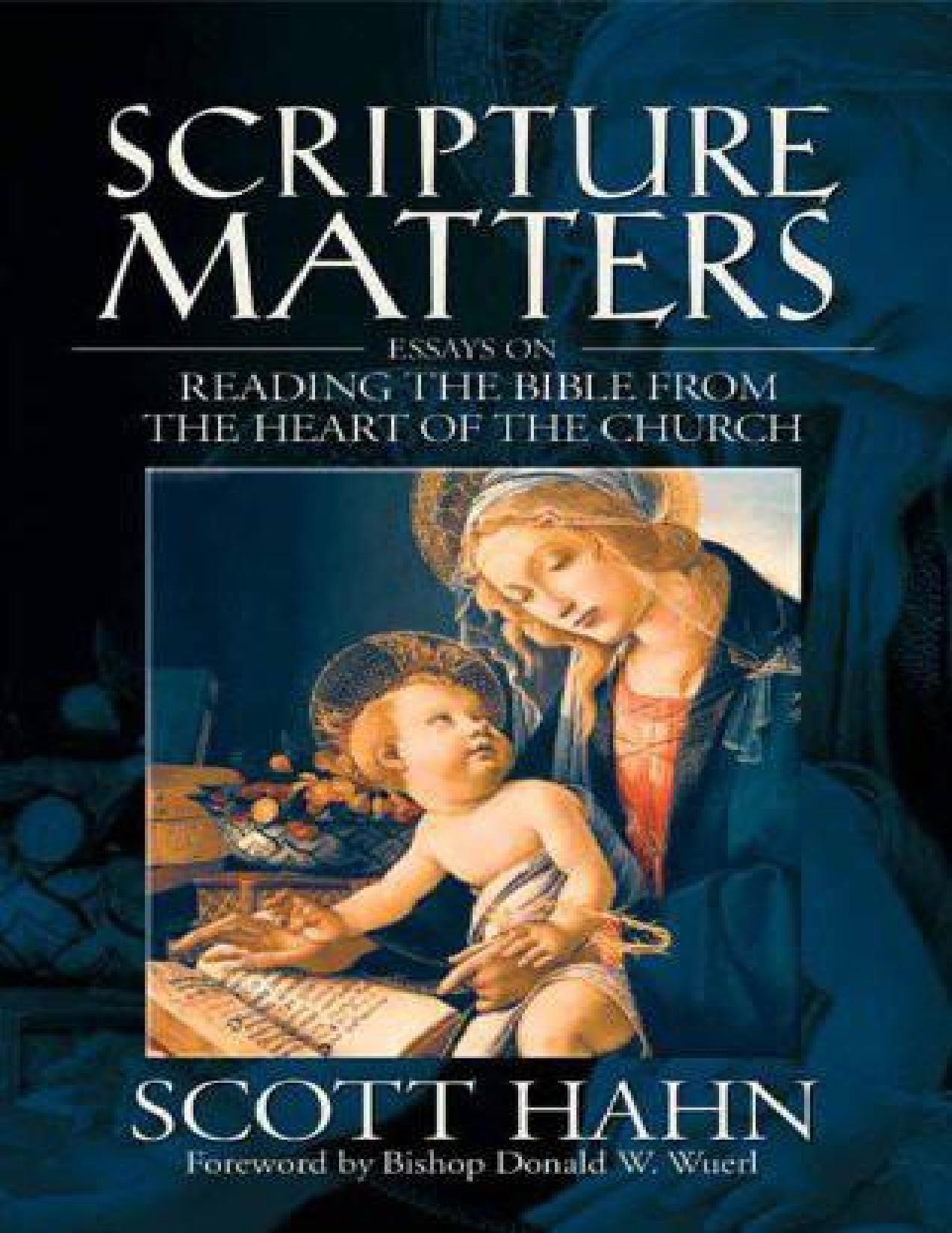Scripture Matters: Essays on Reading the Bible From the Heart of the Church by Scott Hahn

Author:Scott Hahn
Language: eng
Format: mobi, epub, pdf
Tags: Biblical Studies, Religion, Catholicism, Christianity
ISBN: 9781931018173
Publisher: Emmaus Road Publishing
Published: 2003-11-02T04:00:00+00:00
The Showdown
It all begins to sound political. Yet there is a serious spiritual issue at the heart of Jesus' showdown with the Pharisees. Their most fundamental disagreement is over the Pharisees' own standing before God and His Law.
How did the Pharisees see themselves? Consider Saint Paul's testimony about his own standing as a Pharisee. He says that he was “as to the law, a Pharisee . . . as to righteousness under the law blameless” (Phil. 3:5–6). The word “pharisee” itself comes from parushim, Hebrew for “separated ones.” The Pharisees defined holiness as separation from impurity and defilement. That's why they prided themselves on their superiority to the rabble (cf. Lk. 18:11).
Yet most of the Pharisees we meet in the Gospel are envious of Roman power and of the power and influence of Jesus. It is their self-righteousness that seems most to provoke the anger of Jesus.
In John's Gospel, Jesus' struggle with the Pharisees is depicted as an intense conflict between the forces of light and darkness. This begins early on, in the third chapter, when “a man of the Pharisees named Nicodemus . . . came to Jesus by night” (Jn. 3:1–2). John then proceeds to develop the relationship between Jesus and the Pharisees in terms of cosmic judgment (cf. 3:18–20, 26; 5:22–30). He later says to them: “It is Moses who accuses you, on whom you set your hope. If you believed Moses, you would believe me” (Jn. 5:45–46). Again, when Jesus is teaching in the Temple, He asks them, “Did not Moses give you the law? Yet none of you keeps the law. Why do you seek to kill me?” (Jn. 7:19).
Long before then, however, the Jews had begun to look for an opportunity to kill Jesus, because they perceived Him “making himself equal with God” (Jn. 5:18). Thus, when it was time to go up to Jerusalem for the Feast of Tabernacles, Jesus had to delay His journey and go up privately “because the Jews sought to kill him” (Jn. 7:1). After arriving in secret, Jesus began teaching in the Temple, where He charged the Jews, “Do not judge by appearances, but judge with right judgment” (Jn. 7:24). Even the officers who were sent by Pharisees to arrest Him were so impressed that they returned saying, “No man ever spoke like this man” (Jn. 7:46).
By the end of the seventh chapter, the Pharisees are desperately agitated. Jesus had just finished telling them that the Law that they prided themselves on knowing, they disobeyed. Now it was their turn to challenge Jesus to exercise “right judgment,” in a case where “right judgment” could prove disastrous.
Download
Scripture Matters: Essays on Reading the Bible From the Heart of the Church by Scott Hahn.epub
Scripture Matters: Essays on Reading the Bible From the Heart of the Church by Scott Hahn.pdf
This site does not store any files on its server. We only index and link to content provided by other sites. Please contact the content providers to delete copyright contents if any and email us, we'll remove relevant links or contents immediately.
The Five People You Meet in Heaven by Mitch Albom(3561)
The Secret Power of Speaking God's Word by Joyce Meyer(3182)
Real Sex by Lauren F. Winner(3014)
Name Book, The: Over 10,000 Names--Their Meanings, Origins, and Spiritual Significance by Astoria Dorothy(2979)
The Holy Spirit by Billy Graham(2944)
0041152001443424520 .pdf by Unknown(2843)
How The Mind Works by Steven Pinker(2813)
ESV Study Bible by Crossway(2774)
Ancient Worlds by Michael Scott(2682)
Churchill by Paul Johnson(2578)
The Meaning of the Library by unknow(2565)
The ESV Study Bible by Crossway Bibles(2550)
The Gnostic Gospels by Pagels Elaine(2527)
MOSES THE EGYPTIAN by Jan Assmann(2412)
Jesus by Paul Johnson(2352)
City of Stairs by Robert Jackson Bennett(2347)
The Complete Dead Sea Scrolls in English (7th Edition) (Penguin Classics) by Geza Vermes(2277)
The Nativity by Geza Vermes(2227)
Ancient Near Eastern Thought and the Old Testament by John H. Walton(2223)
